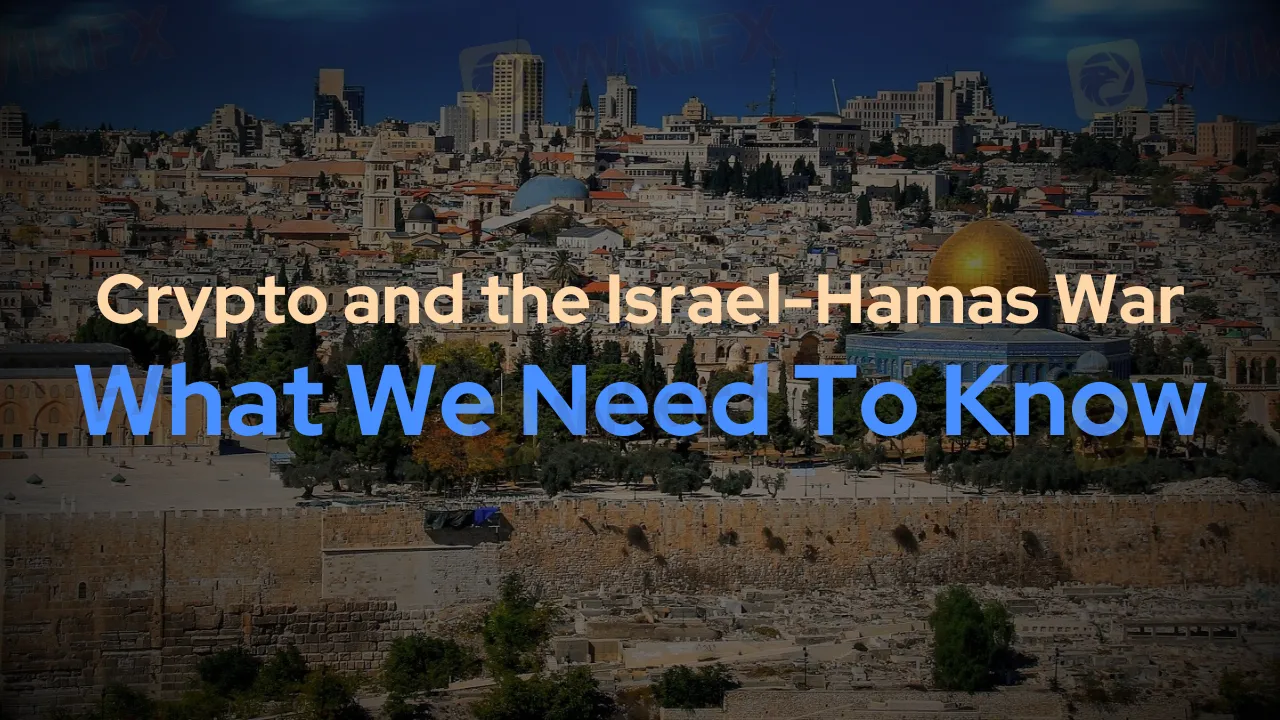简体中文
繁體中文
English
Pусский
日本語
ภาษาไทย
Tiếng Việt
Bahasa Indonesia
Español
हिन्दी
Filippiiniläinen
Français
Deutsch
Português
Türkçe
한국어
العربية
Crypto and the Israel-Hamas War: What We Need To Know
Abstract:In the unfolding Israel-Hamas conflict, the use of cryptocurrencies has emerged as a notable point of interest. Here's a breakdown of the discussions surrounding the topic.

In the unfolding Israel-Hamas conflict, the use of cryptocurrencies has emerged as a notable point of interest. Here's a breakdown of the discussions surrounding the topic.
Digital Trails
Israeli authorities have reported seizing some cryptocurrency funds, underscoring the existence of a digital paper trail. Blockchain data, upon which cryptocurrencies like Bitcoin operate, offers a transparent record of transactions. While this transparency is often seen as a boon for legitimate transactions, Sud becomes a risk for those attempting to discreetly move funds.
However, the exact amount of cryptocurrency used by Hamas remains a point of ambiguity. Some figures require further context, as certain territories have over-the-counter brokers that may inadvertently be linked to Hamas. If these brokers have ties to the group, their accounts, which may contain funds unrelated to Hamas, could be seized.
Cryptocurrency's Role in Modern Conflicts
Crypto, originally lauded for its decentralized and censorship-resistant nature, has found itself under scrutiny. While it was designed to be a universal currency accessible to all without interference, the reality is that it operates within a regulated world. Financial services, especially in the U.S., have had regulatory measures in place since 2013, dispelling the myth that crypto is unregulated.

However, a key concern is that bad actors, such as Hamas, may exploit jurisdictions with lax or unimplemented regulations. These jurisdictions become weak points, allowing the bypass of established safeguards.
Hamas' Funding Sources
The funding landscape for Hamas is vast. Beyond crypto, Hamas has a diverse range of financial sources. From taxation to businesses and more traditional forms of fundraising, the group has been known to use various means. The U.S. Treasury even sanctioned the Hamas Investment Office last year, which held assets worth $500 million, spanning businesses, real estate, and mining.
Related news:
Regarding the crypto's role in this landscape, experts suggest it is a minor component. Public solicitations for cryptocurrency donations, while immediate, raise the group's profile and inherently attract investigative attention. With the transparent nature of blockchain, these transactions can be traced, making them less attractive for entities seeking discretion.
In conclusion, while the Israel-Hamas conflict has thrown light on the potential use of crypto in such scenarios, it remains just one facet in a complex web of funding sources. The transparent nature of cryptocurrency might deter its extensive use for covert activities, but its global nature ensures it remains a point of interest in the evolving landscape of modern conflicts.

Disclaimer:
The views in this article only represent the author's personal views, and do not constitute investment advice on this platform. This platform does not guarantee the accuracy, completeness and timeliness of the information in the article, and will not be liable for any loss caused by the use of or reliance on the information in the article.
Read more

Big News, Big Moves: Should You Trade During Major Announcements?
Whether it’s central bank decisions, economic data releases, or geopolitical developments, such major events can trigger extreme price swings within seconds. For traders, the temptation to capitalise on these moves is undeniable. But is it a wise strategy, or does it carry unnecessary risk?

Beware: Another Victim Of Finalto Clone Scam
A techie lost INR 45 lakh to a Finalto clone scam via a dating app. Learn how forex scammers operate and protect your investments from fraud.

CPT Markets Secures UAE SCA License for FX and CFDs Services
CPT Markets’ UAE subsidiary, CPT MENA, secures an SCA Category Five license, expanding its FX and CFDs services in the region. Learn more about its UAE growth.

Is the North Korea's Lazarus Group the Biggest Crypto Hackers or Scapegoats?
The Lazarus Group stole $2B in crypto, but are they acting alone? Or is a bigger player behind these global cybercrimes? Investigate how North Korea's hackers operate and whether external powers are pulling the strings.
WikiFX Broker
Latest News
Forex Trading: Scam or Real Opportunity?
The Hidden Tactics Brokers Use to Block Your Withdrawals
Beware: Online Share Buying Scam Costs 2,791,780 PHP in Losses
5 things I wish someone could have told me before I chose a forex broker
Unmasking a RM24 Million Forex Scam in Malaysia
U.S., Germany, and Finland Shut Down Garantex Over Money Laundering Allegations
What Impact on Investors as Oil Prices Decline?
Gold Prices Fluctuate: What Really Determines Their Value?
Dollar Under Fire—Is More Decline Ahead?
Is the North Korea's Lazarus Group the Biggest Crypto Hackers or Scapegoats?
Currency Calculator







